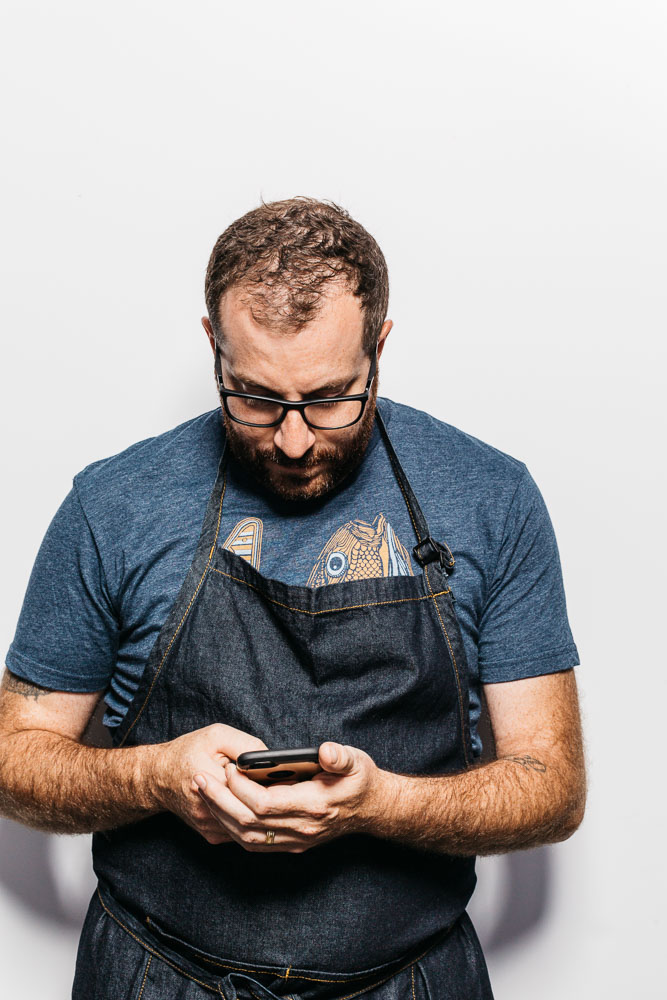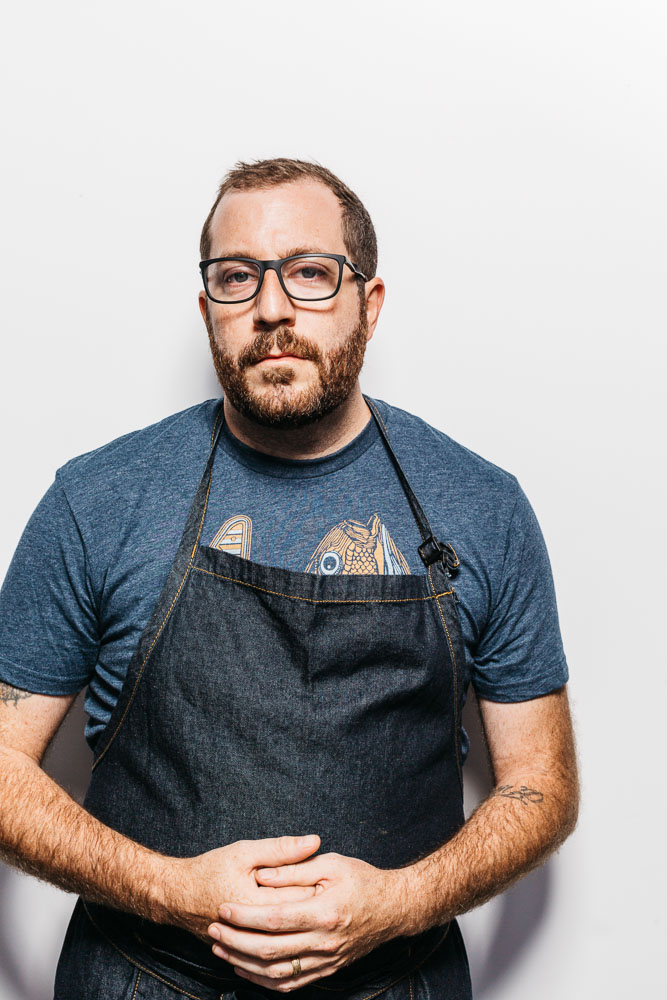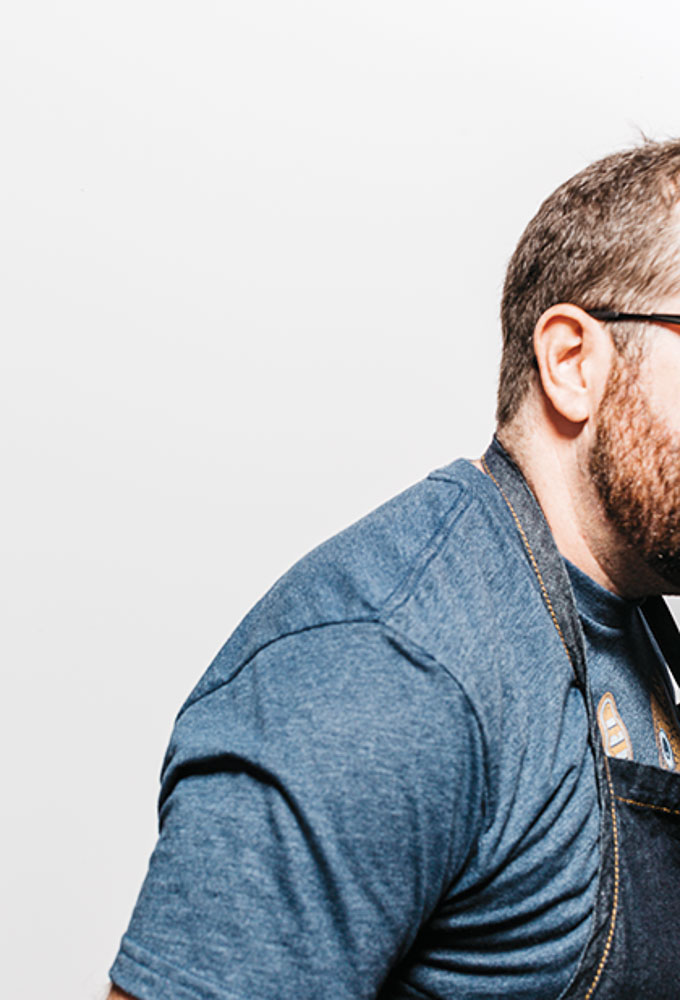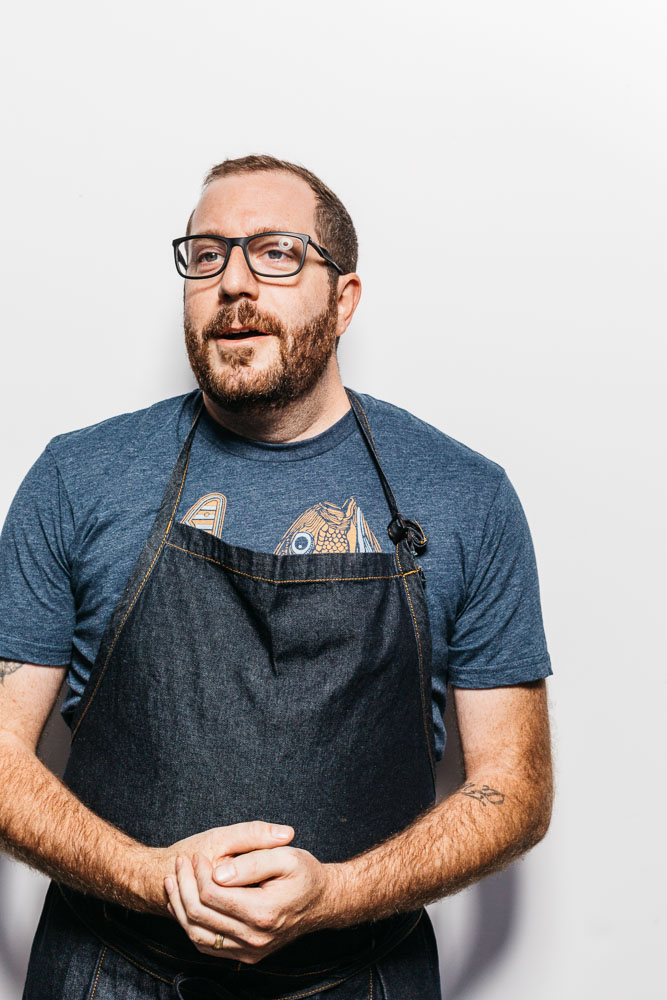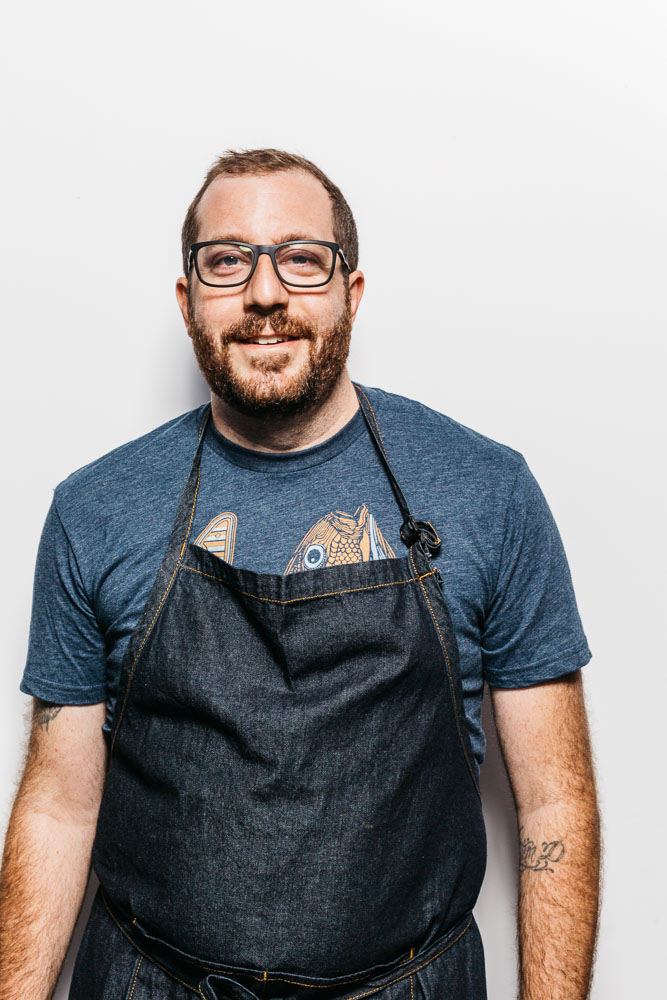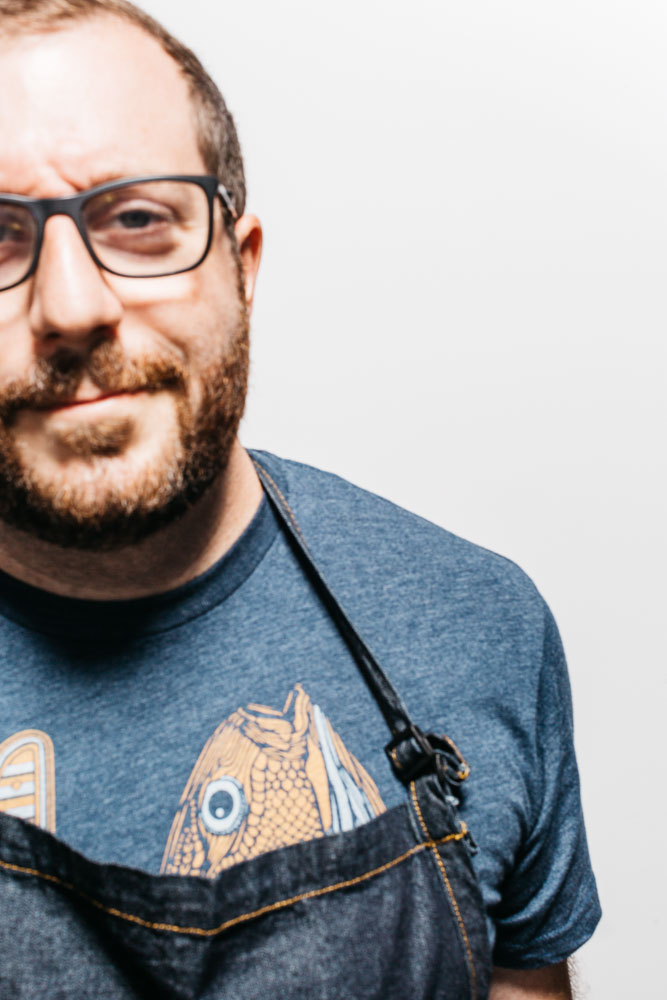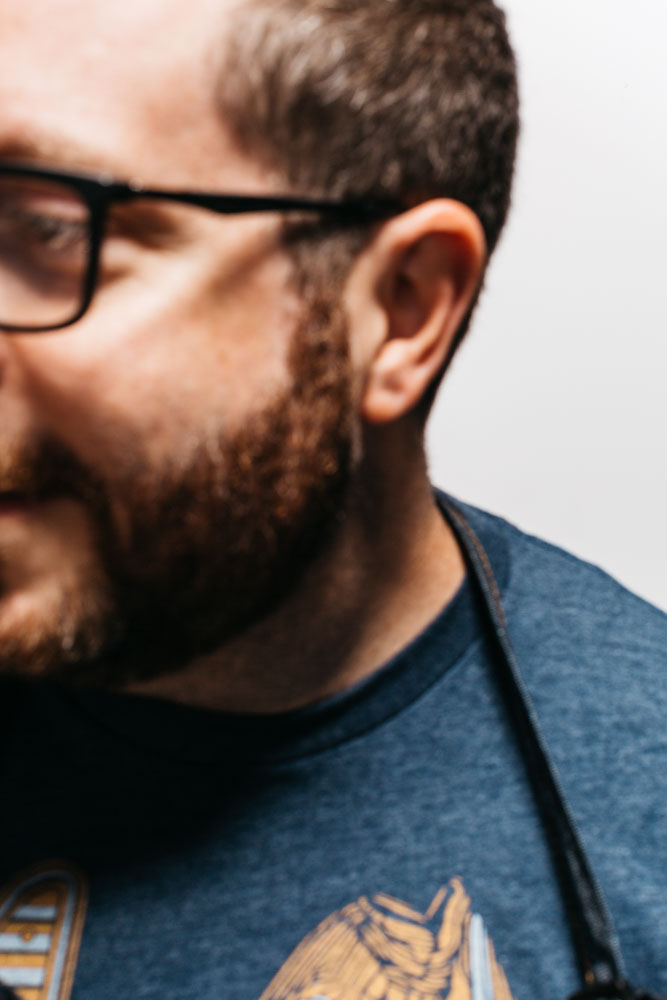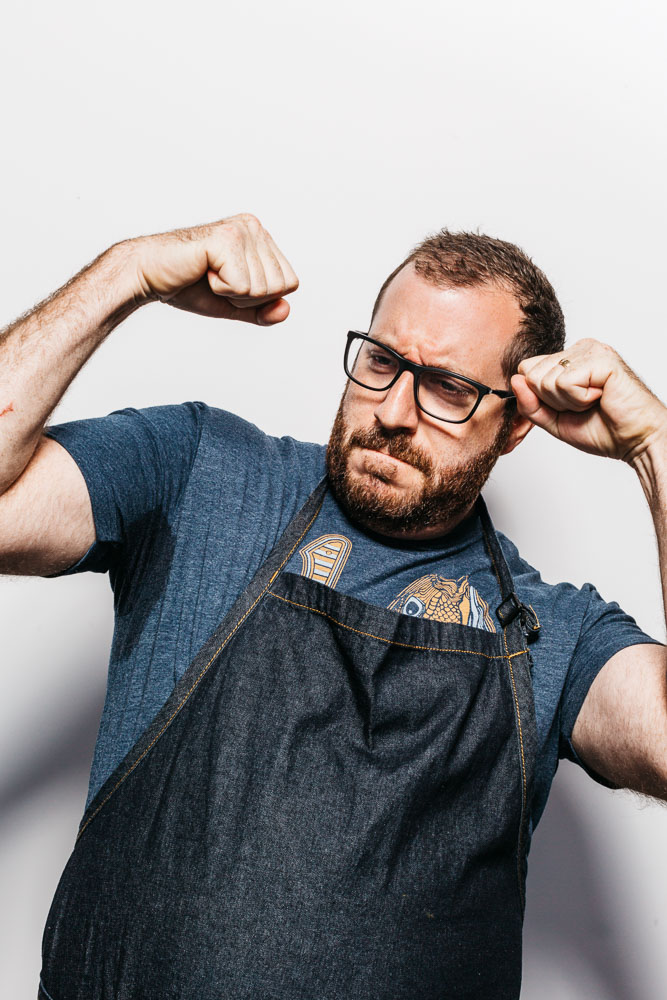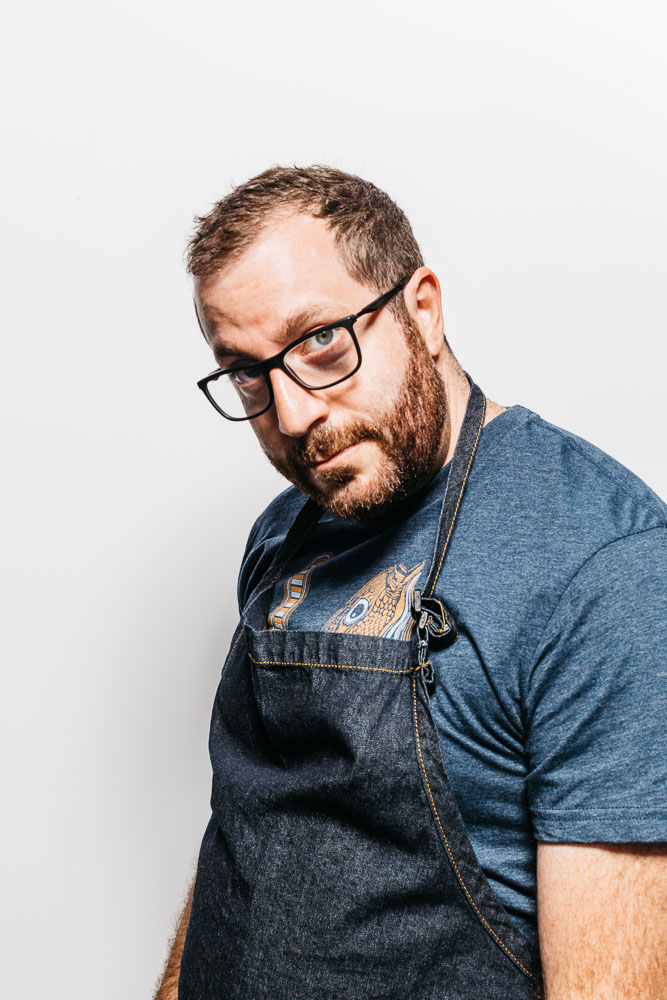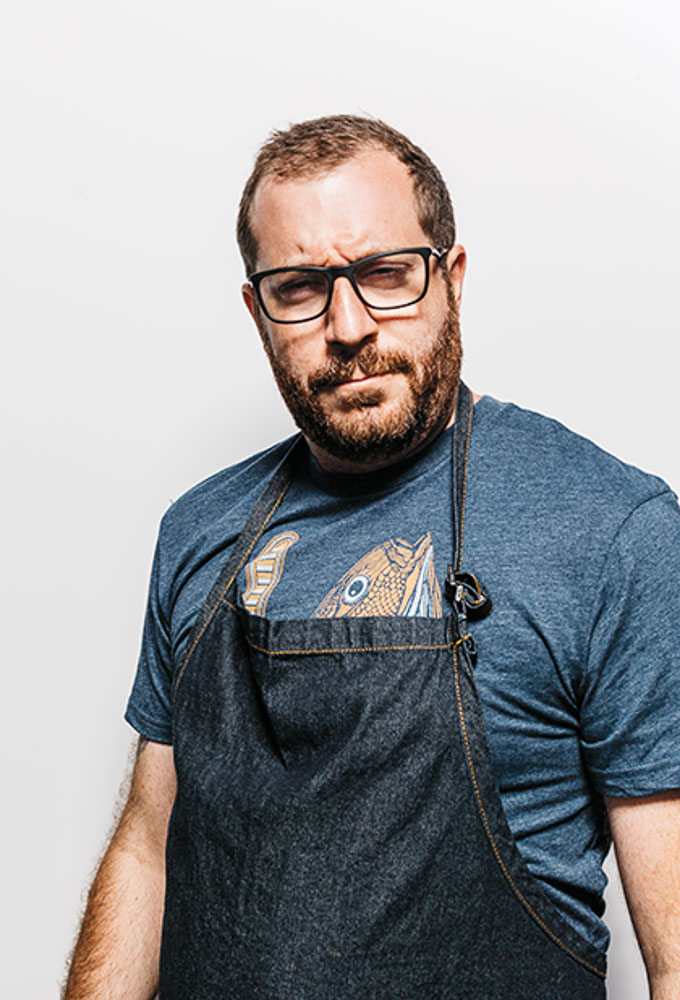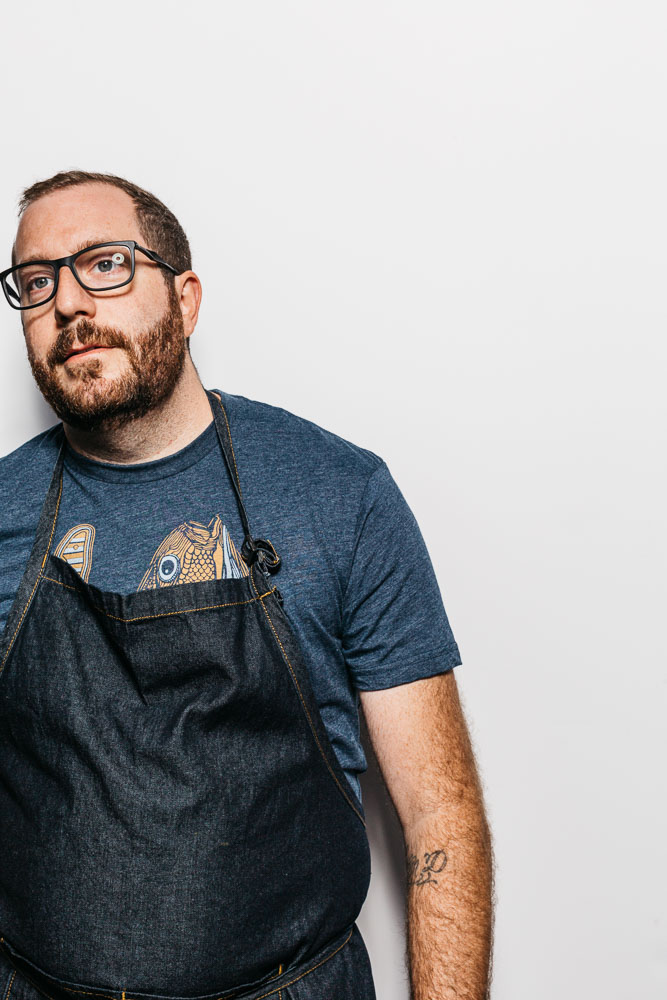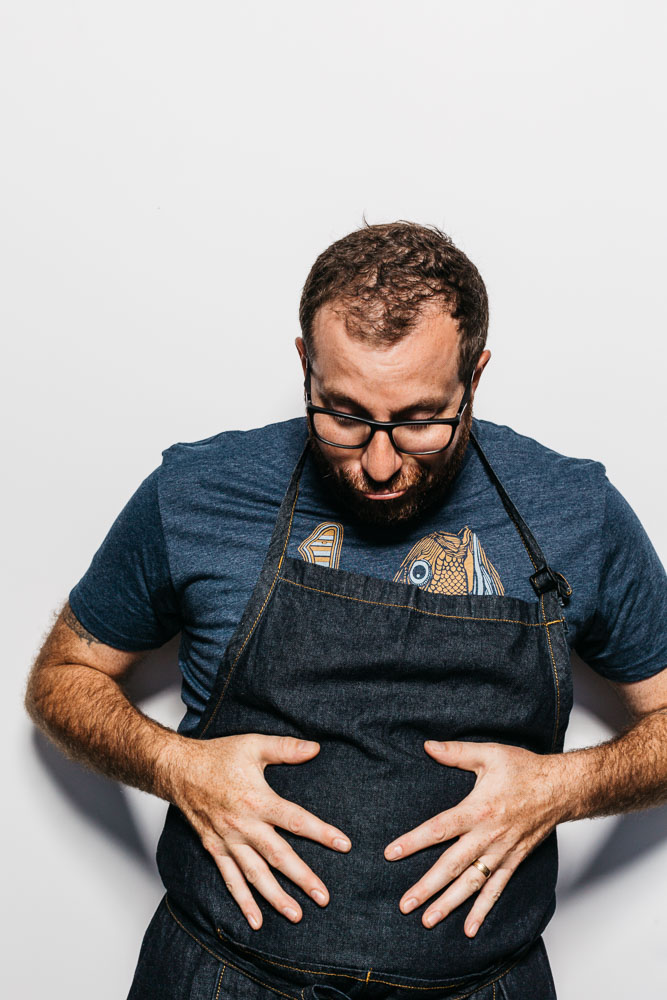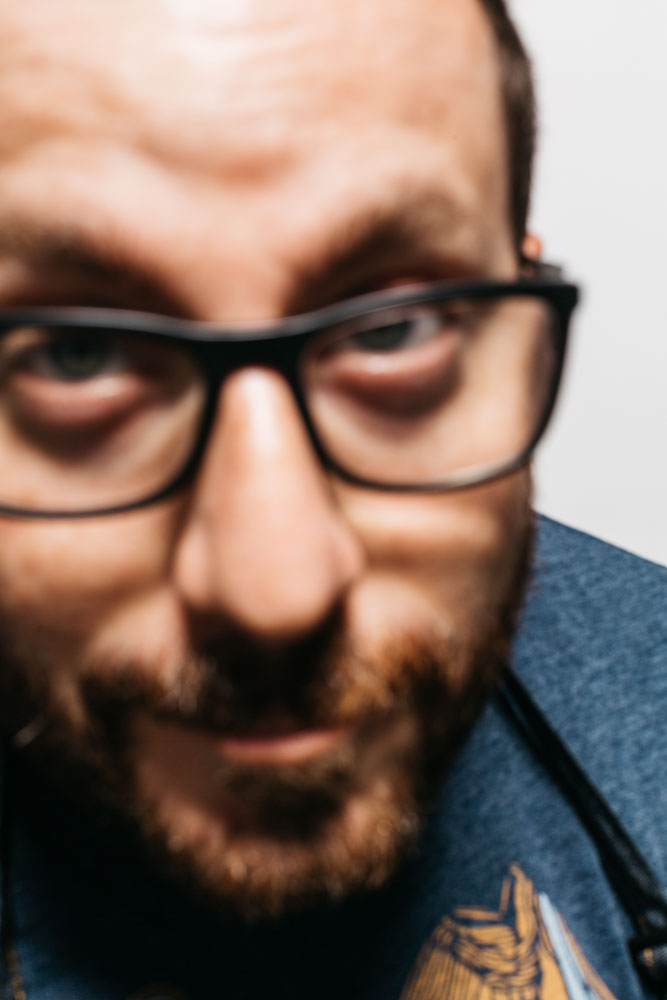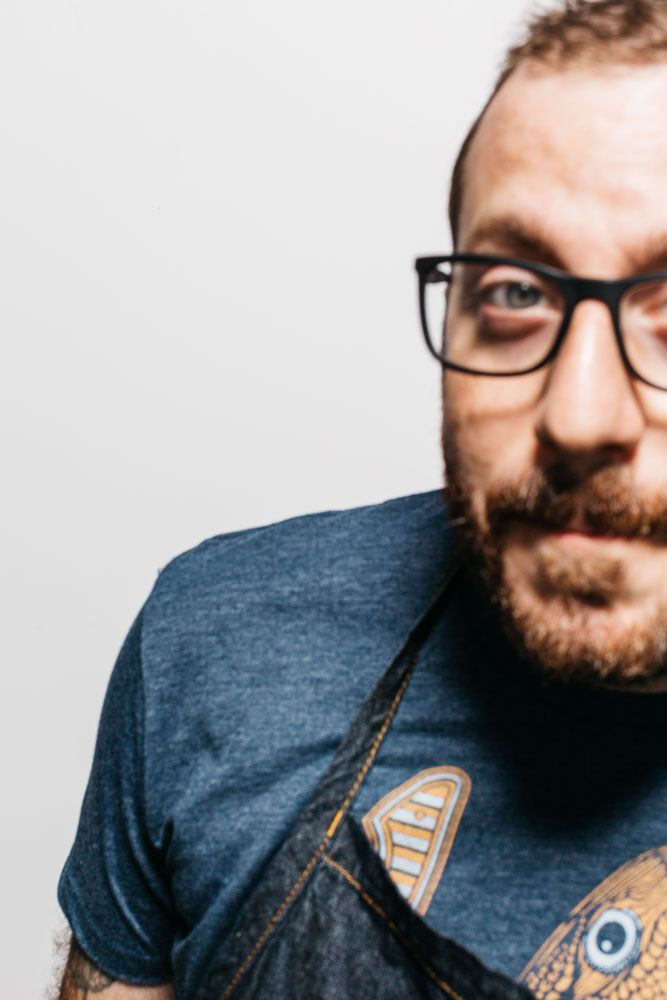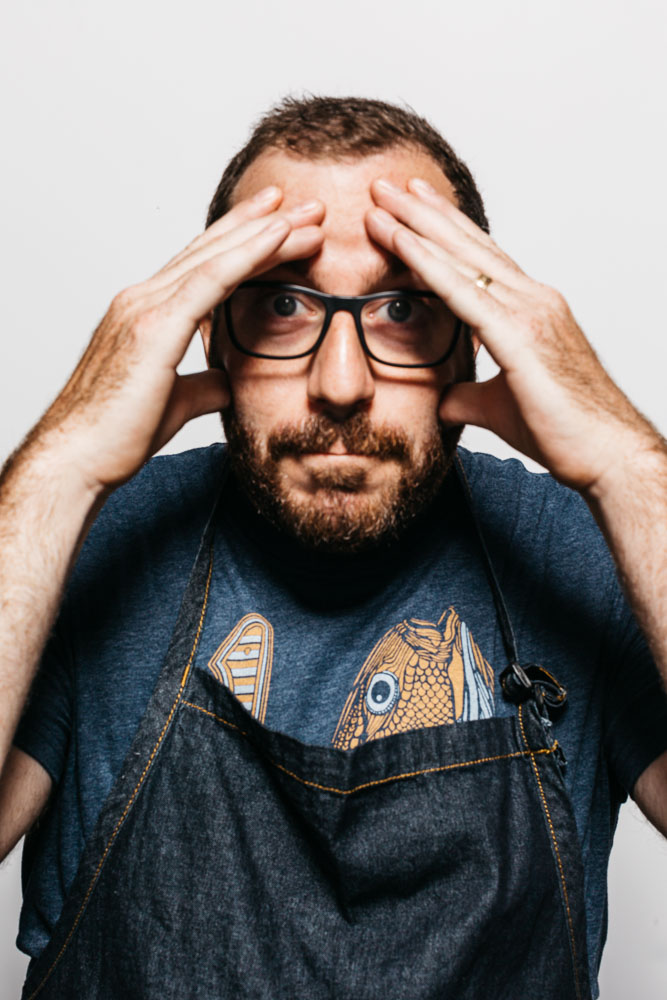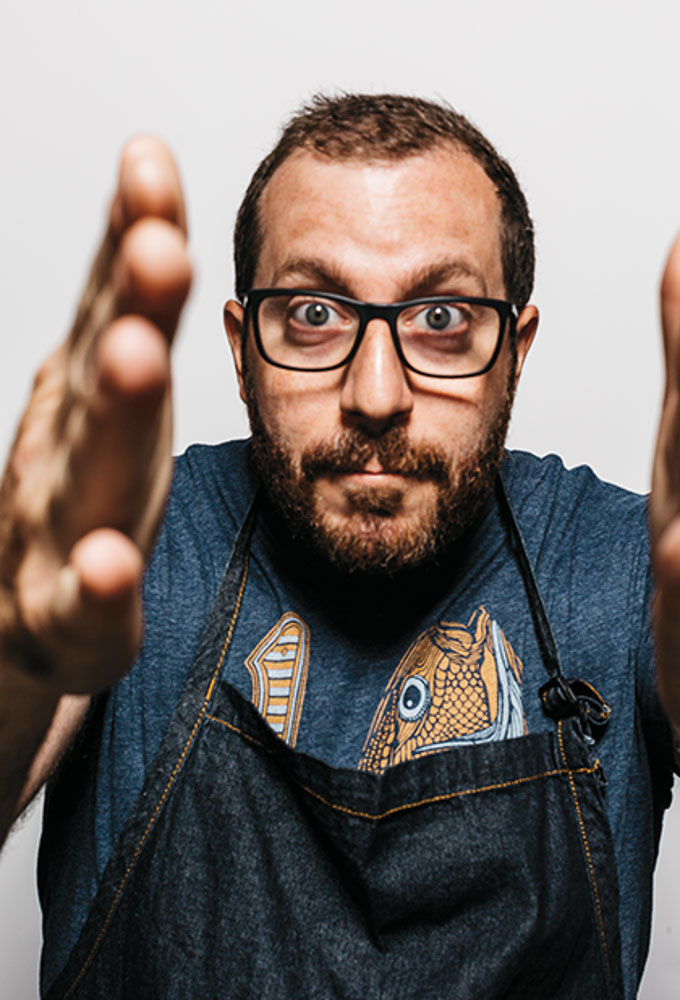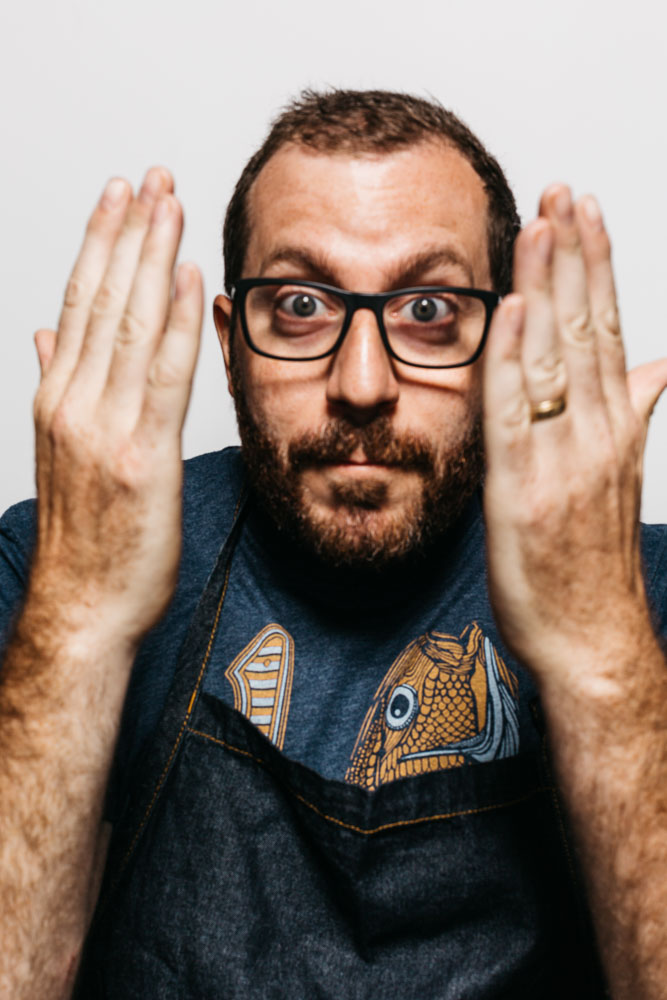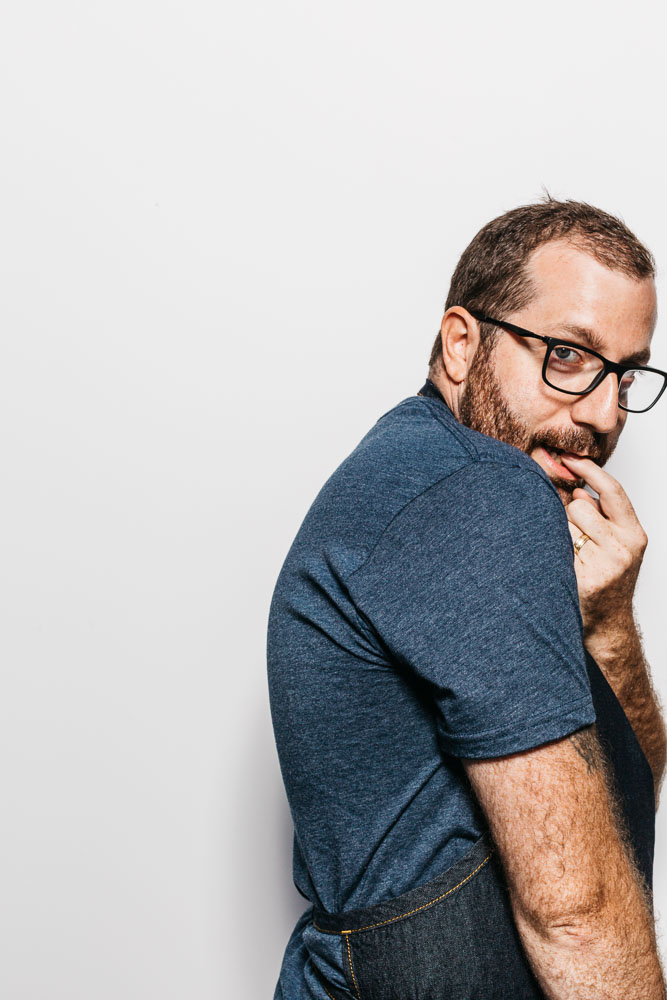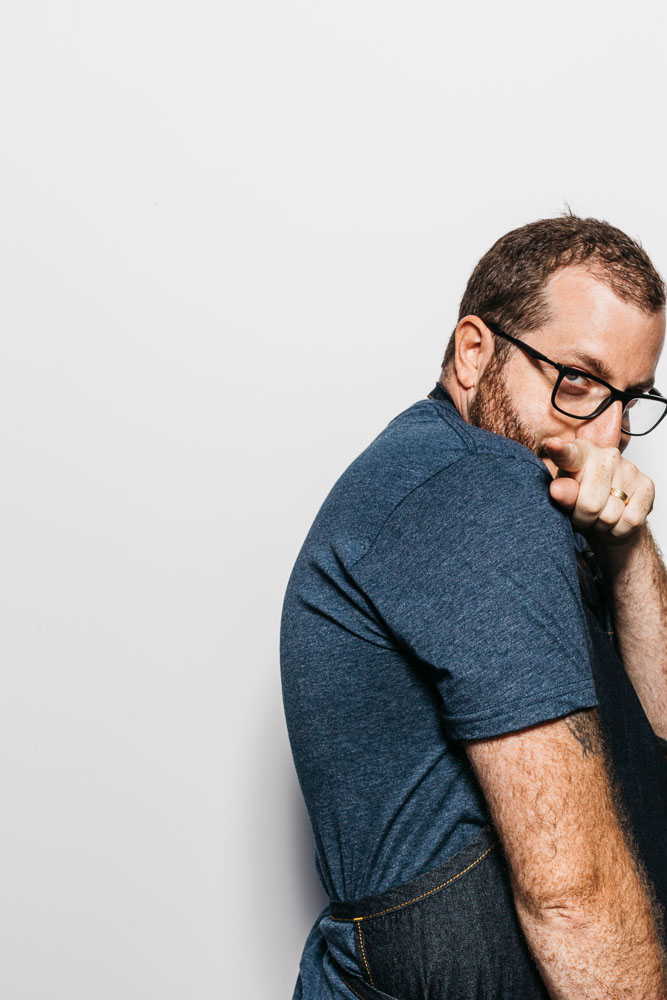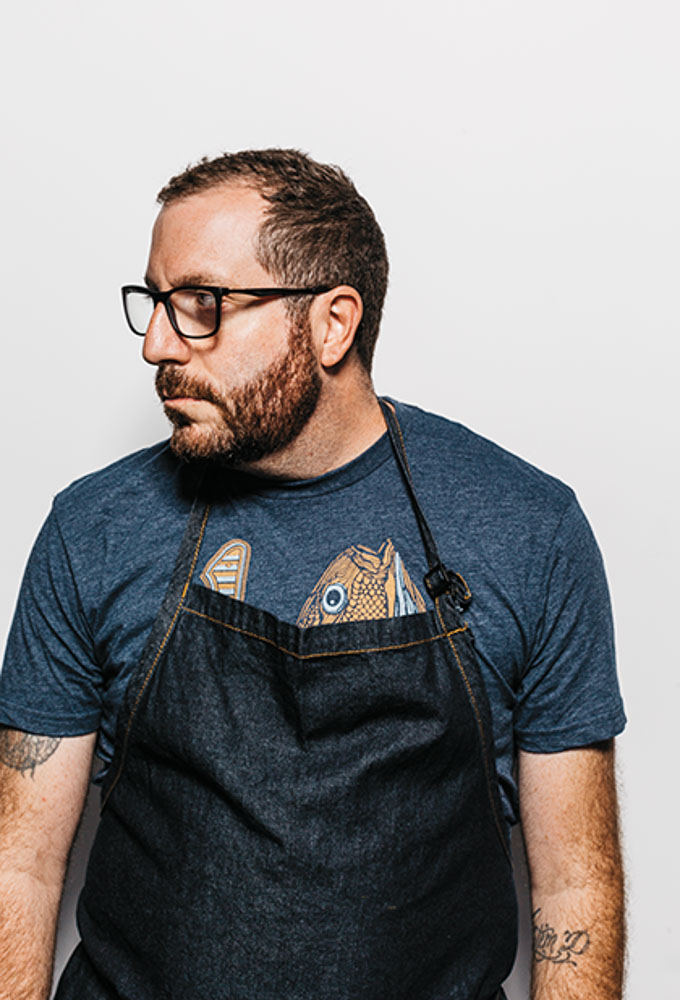Q&A Chef David Punch, Sycamore and Little Big Diner
Photos by Michael Piazza
If the Newton Centre food scene feels a little more urban lately, it’s because David Punch set out to make it so.
Punch left Ten Tables in Harvard Square to open Sycamore, a bistro with a seasonal menu on Beacon Street in Newton, with co-chefowner Lydia Reichert, in 2013. This past January, in an even smaller space a couple blocks away, he opened Little Big Diner with coowner Alison Hearn. The packed 675-square-foot restaurant churns out East Asian comfort food with a focus on ramen and rice bowls.
We spoke with him at Sycamore about feeding his children obnoxiously healthy food, a memorable dish he ate in the South End that solidified his culinary passion, how Newton’s restaurant clientele differs from Cambridge’s and if Newton Centre is going to see another David Punch restaurant sometime. (Spoiler: Yes.)
EDIBLE BOSTON: Both of your restaurants are open seven days a week. How do you manage your schedule?
DB: I’ve been with my wife now for 16 years. It was important to my wife and me to have some common days off together. It doesn’t always work that way, but 75% of the time I’m off on Saturdays and Sundays. I have such an incredible staff that I trust so much. They’re like family. I’m wherever I’m needed, obviously. I’ll do whatever I need to do to make services go smoothly. But I try my hardest to work a Monday–Friday schedule like a normal person.
Most chefs haven’t managed to make that work.
No, the traditional chef schedule off is Sunday–Monday, or Monday–Tuesday. We’re busy. If you’re full, you’re full. Monday is the same as Saturday here, you know what I mean? You do the same amount of people in the same amount of time. We always work the line with five people. With a bigger staff, I think it will pay off in the long run, making sure the food is all tight. I always say to cooks that it’s going to be a really, really hard job when you come to work here, but you’re going to leave this restaurant a better cook.
What do you look for when you’re hiring someone?
Commitment. I like to see that they’ve been someplace for at least a year at a time. No ego allowed. I don’t have an ego and so I expect the cooks not to have egos too. I believe in teamwork. All the buzzwords, really, to have a happy, healthy kitchen. I hire personalities here. I hire nice people. [You can be] a wicked bad*ss line cook, but if you’re a d***, I don’t want you in my kitchen.
When you opened Little Big Diner, your sous chef Daniel Scott from Sycamore became the executive chef there. Other Sycamore staff made similar transitions to the new space.
Someone helps me at my restaurant, man, I owe them for life. I try to create more opportunities for them. If Daniel lasted three years at Sycamore, why wouldn’t he be the chef [at Little Big Diner]? The next restaurant I open up, it will probably be with someone else from within the company.
How do you choose your suppliers?
I had a long relationship with Allandale [Farm] since I was at Upstairs in the Square. And Drumlin [Farm] came on the scene selling some wholesale stuff maybe seven or eight years ago and I jumped right on board. I love Drumlin. I take my kids there.
How many kids do you have?
5-year-old boy, 1½-year-old girl.
That’s a lot to juggle. What do you cook at home?
All summer I just grill. I don’t like to make too many dirty dishes because I don’t want to do the dishes on my day off. I’m a pretty unhealthy guy, but I just always gravitate [towards healthier foods] when I’m cooking for my wife and kids and myself. Either just some grilled fish with grilled veggies and some salsa verde and lemon over the top and olive oil, or grilled chicken or pork or something like that.
Then in the wintertime, it’s baked stuff. It’s gotten increasingly difficult to cook at home the longer into my career I get. At this point, I’m closing in on 40, and I’m like, “Oh man.” I set off the fire alarm every time I cook at home. I mean, you can’t get pans hot enough. We just moved into a new house a year ago and we have an electric oven. I don’t even have gas right now.
It sounds like your kids must eat pretty well then.
They do. My wife is super committed to making them fresh food every day. No one eats better than children. You push so hard to give them these super well-rounded meals. You always have a vegetable, a starch, a protein and fresh fruits, yogurts. My kids eat so damn healthy, dude, it’s gross.
Do your kids appreciate it?
Yeah, my son loves it. We have a 50-foot row garden that we farm. My wife started gardening maybe three years ago or so and has become increasingly addicted to gardening.
That’s a great quality to have in a spouse.
It’s pretty dope. We have everything you could want at our house. Eggplants to zucchinis, tons of tomatoes and carrots and beets and greens and broccoli. Bush beans, pole beans. Radishes. That’s what really has gotten [my son] eating more veggies, their little trips out to the garden. He loves plucking up a carrot or a radish. I didn’t grow up that romantic.
Are you one of those people who knew from a young age that you would be a chef?
Not at all. Fancy dinner out was Ken’s Steakhouse or Houlihan’s or Legal Sea Foods. Brisket was a fancy dinner at home but didn’t happen very often. I said maybe 10 years ago or so, “Why don’t we make your brisket, Mom?” She said, “It’s so easy. You take a brisket, you put it into a pot. One bottle of ketchup, one bag of baby carrots and a can of pearl onions and a mushroom soup pack.” I was like, “… Really?” I really used to love that.
I think it was the era. Growing up in the ’burbs—I grew up in Natick—everything was about convenience. That was the ’80s. It was a strange time for food, I think. I had a pretty plain upbringing for food.
I never really wanted to go to college. I think that what drew me to the restaurant industry first was the culture of it all. The fun and exciting days and nights. Once I started to mature a little bit, I found out that I love food and want to feed people. I started working in the South End when I was 21 or 22. The Nightingale restaurant.
So you were getting into food around the time that the restaurant scene was starting to evolve into something more trendy and dynamic.
It’s changed so much since 2000. I never ate funky. I went to do my stage at the Nightingale for a position. I was helping out for free and whatever, hanging out. The chef was, like, “What did you see that you want to try on the menu tonight?” Everything was so foreign to me and crazy. He made me a choucroute garnie. I was like, “F***, what is this crazy pile of sauerkraut with, like, pork belly and grilled pork chops and garlic sausage and all these other things? I want that.” I sat down with the dish on a milk crate and I housed it. That was like the best thing I’ve ever eaten. It blew me away. He hired me, thank God. I bring choucroute garnie into the mix once in a while. I fell in love with food.
How early into your culinary career did you know that at some point you were going open a restaurant in the suburbs?
I had a restaurant in Harvard Square before. I saw Alden & Harlow opening down the street, I saw Giulia opening around the corner. Toscano was under construction. Beat Hotel. I knew [the former space of] Chez Henri was going to open as a new restaurant.
Those are some hot names there.
I was, like, “Man, I don’t want to be around when they throw another 800 seats around me.” Those are all great restaurants. “I’m going to Newton.” I had kinda committed to coming out here because I felt like it was a little underserved. It couldn’t have worked out better. I was super nervous leaving the city. We get the best regulars, dude. Everyone is really appreciative out here. It’s been a dream. I’d love to stay in Newton Centre and open up another place.
The biggest endorsement of a neighborhood is to keep opening restaurants there.
The scene, it’s always busy. The people are nice. It’s an affluent community, so people dine out very often over here. I think people are pretty appreciative that we opened up a very urban restaurant in a suburban setting. You could take Sycamore and throw it down into the East Village and I hope we’d flourish down there too.
Is a third restaurant in the pipeline at some point?
I just want to really wait for the right opportunity. When you’re an owner, you get a lot of calls. I don’t want to rush into anything. It’s a marathon. I have 20-year leases for both my restaurants. I have a business manager. If he endorses a space, then maybe we’ll talk. But yes, a third one will come. I don’t know what it will be. I have all these ideas, as all chefs do. We’re going through a real strange time in the restaurant industry. The amount of restaurants that are opening are outpacing the amount of employees.
It’s not as easy as just making good food.
You can’t have the greater fool theory where you just go in there. Why are you going to succeed where someone else failed? You can’t just say, “Well, it’s because I’m a better cook.” Are you a better businessman?
So how did you know that it was the time for Little Big Diner? It appears successful so far.
Three years in, we were ready just to open up something. I needed to create a new opportunity for a couple guys who were working here. It was just the right time and the right place. I started to fall in love with ramen five or six years ago. I was, like, “Yo, I’ll just open up my own place. I can cook.” [Bigger restaurants] are a little scary to me, a little overwhelming, a little intimidating. I’d rather get on base and be full every night and have a tiny little restaurant. I believe in slow and steady wins the race. My restaurants are busy and they get the job done. I like a little restaurant.
This interview has been condensed for length purposes.
Sycamore
755 Beacon St., Newton
617-244-4445
Little Big Diner
1247 Centre St., Newton
857-404-0068
This story appeared in the Fall 2016 issue.

